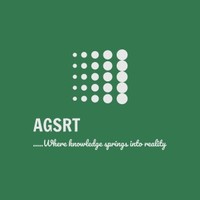GIS in Artificial Intelligence & Machine Learning - Certificate Course by Avakaza Geoscience Research Technologies(AGSRT)
- AGSRT

- Feb 2, 2024
- 3 min read
Updated: Sep 19, 2024
Ready to explore the dynamic fusion of GIS, Artificial Intelligence, and Machine Learning?
Join AGSRT's Certificate Course and unlock a world of possibilities!

Course Modules: AI/ML Content
1. Introduction to Machine Learning Concepts
Definition and Scope of Machine Learning
Historical Overview of Machine Learning
Types of Machine Learning: Supervised, Unsupervised, Reinforcement Learning
Key Terminology: Features, Labels, Training, Testing, etc.
Importance and Applications of Machine Learning
2. Common Machine Learning Algorithms and Their Applications
Supervised Learning Algorithms:
Linear Regression
Decision Trees
Random Forest
Support Vector Machines (SVM)
k-Nearest Neighbours (k-NN)
Applications of Each Algorithm in Real-world Scenarios
3. Pre-processing Data for Machine Learning
Handling Missing Data
Data Cleaning and Transformation
Feature Scaling and Normalization
Splitting Data into Training and Testing Sets
4. Model Training and Classification
Overview of Model Training Process
Evaluation Metrics: Accuracy, Precision, Recall, F1 Score
Cross-Validation Techniques
Hyperparameter Tuning
Ensemble Methods: Bagging and Boosting
Introduction to Neural Networks and Deep Learning
ANN-Artificial Neural Network
Convolutional Neural Network
5. Data Visualization & Validation
Importance of Data Visualization in Machine Learning
Tools and Libraries for Data Visualization (e.g., Matplotlib, Seaborn)
Exploratory Data Analysis (EDA)
Model Validation Techniques
Overfitting and Underfitting
Confusion Matrix and ROC Curve Analysis
GIS in AI & Machine Learning
Landslide Susceptibility Mapping & PM10 Concentration
1. Spatial Data Gathering and Preparation
· Overview of spatial data sources
· Introduction to Geo-spatial data formats (Shape files, GeoTIFF, etc.)
· Importance of metadata in spatial datasets
· Hands-on experience with data acquisition from sources like remote sensing, GPS, and satellite imagery
2. Spatial Data Cleaning and Pre-processing
· Techniques for handling spatial data outliers
· Handling spatial data noise and inaccuracies
· Quality assurance in spatial datasets
· Utilizing GeoPandas for cleaning and pre-processing
3. Geo-spatial Analysis Libraries
· Introduction to GeoPandas for GeoDataFrames and spatial operations
· Utilizing GDAL (Geospatial Data Abstraction Library) for spatial data formats and transformations
· Hands-on exercises with GeoPandas and GDAL for spatial data manipulation
4. Splitting Training and Testing Data
· Considerations specific to spatial data splitting
· Spatial cross-validation techniques
· Ensuring spatial independence in training and testing datasets
5. Classification and Model Building
· Application of machine learning algorithms to spatial data
· Integrating GeoPandas and GDAL with machine learning models
· Case studies on landslide susceptibility mapping and PM10 concentration prediction
6. Model Evaluation and Validation
· Spatial-specific evaluation metrics
· Assessing the accuracy of spatial predictions
7. Applying Built Models to Spatial Layers
· Deployment of models to new spatial data
· Real-world applications in environmental monitoring and geospatial analysis
8. Data Visualization and Prediction Map
· Visualization techniques for spatial data using Matplotlib and Seaborn
· Creating prediction maps for landslide susceptibility and PM10 concentration
· Interpretation and communication of spatial model results
📆 Class Starts on Feb 3rd | Duration: 1 Month
🕰️ Time: Monday to Friday, 2:30 pm - 4:00 pm
🌐 Mode of Training:
🌆 Offline - In Bangalore
💻 Online is also Available
Why Choose AGSRT?
✅ Expert Trainers: Learn from industry professionals.
🌐 Practical Approach: Hands-on training with real-world applications.
🎓 Certification: Validate your skills with AGSRT's Certificate.

📞 Call Now to Secure Your Spot!
📱 +91 9980083996
📱 +91 9742349602
📱 +91 8921038671
👥 Join AGSRT - Where Expertise Meets Innovation!
.png)



Comments